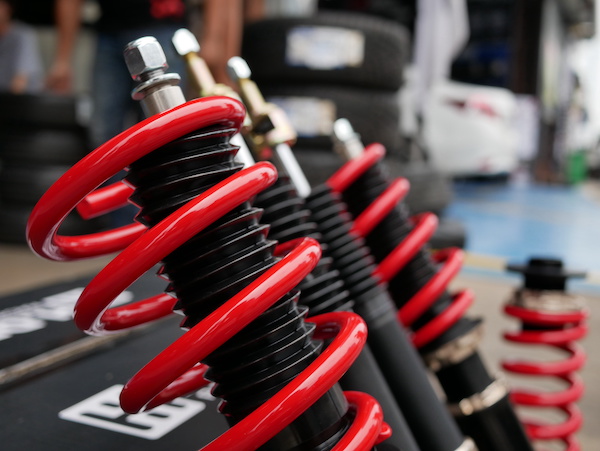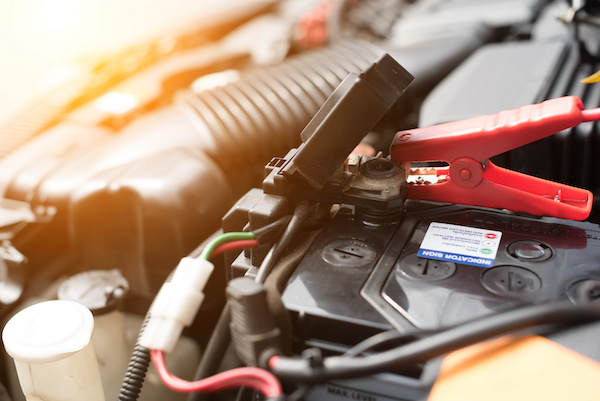Posted on 9/28/2022

If you're noticing the following signs, it's time to take your car in for suspension repair. Your car's suspension system is vital to its safety and performance, so don't ignore these warning signs! Signs Your Vehicle Needs Suspension Repair Your Car Feels Unstable on the Road One of the most common signs that your car needs suspension repair is if it feels unstable or bouncy on the road. This can be due to worn-out shocks or struts. You Hear Noises Coming From Your Car's Suspension Another sign that your car needs suspension repair is if you hear strange noises from the suspension system. These noises may include creaking, popping, or rattling sounds and are an indication that one or more of the components in the suspension system are starting to wear out and will need replacing. Your Car is Leaning to One Side If your car seems to be leaning to one side when you are driving, this could indicate a problem with the suspension system. This can be caused by a w ... read more
Posted on 8/29/2022

Starting your car will not be possible without a working car battery. That is why most people check their battery and other electronic components as soon as they experience starting problems. Read on to learn more about the weak signs of a vehicle’s battery and how to tell if you need to replace it soon. The typical 12-volt car battery will last around 5-6 years before it needs to be replaced. Depending on your battery voltage, type, driving conditions, and level of care, it may last longer or it may die sooner. Sometimes, all you need is to jump-start your battery to get it going. But eventually, all batteries will lose their life and need to be swapped out. Here is how to tell if you have a dying car battery: 1. Vehicle Struggling to Start If your car takes a while to start up, then it’s not worth it to sit through it every time. Pretty soon, you won’t be able to start your engine at all. If you’re grabbing the jumper cables a little too much, you s ... read more
Posted on 7/27/2022

As a driver, it's common to develop a unique connection with your car making it easy to tell when something is wrong. While every part of your car plays a critical role in its functionality, comfort, and efficiency, some features are more sensitive than others. The brakes, for instance, are critical for safe driving and stopping your vehicle. But when you apply the brakes, and your pedal or steering wheel shakes, it's a cause of concern and trouble. Vibrations when you brake, mean it's time to head to the nearest auto repair shop to prevent further safety issues. Major causes of a Brake Shudder While vibrations or a brake shudder should not cause panic, it may signal a series of issues if ignored. However, a few causes of a brake shudder are not always a reason for a brake replacement. You should identify whether the shaking comes from the pedal or the steering. If a shudder is felt on the steering, it is likely an issue with the front braking discs. Vibrations felt on ... read more
Posted on 6/27/2022

When the thermometer rises and the stars disappear, your car will be ready for the summer with this checklist! For most people, the idea of a vacation means packing away the work clothes and getting your car ready for its annual summertime wash. But what do you need to know beyond a summertime car wash routine? We're going to go over it in detail. It's finally time for summer break. Whether you're heading out on a road trip or just buying a new wardrobe and going away on vacation, one thing is sure: it's going to get hotter outside in no time! What are you waiting for? Get your car ready now, so it's not sitting in some garage gathering dust come late July. 1. Change your oil and oil filter Summer is coming! Oil and oil filter changing is especially crucial if it has been a long since your last oil change. Intense weather conditions apply more demand on your oil and oil filter. The filter will also clog up over time and start to restrict the flow of oil through y ... read more
Posted on 5/26/2022

When traveling with infants and toddlers, safety is a key factor when planning your trip. When you are going on the road, you want to make sure you and your children arrive at your destination safely. What are some tips for parents traveling with babies and toddlers? How do you keep your children safe on the road? Tips to Keep Your Children Safe on the Road As a parent, you are responsible for your child's overall safety, including travel safety. Here are some tips to keep your baby or toddler safe on a road trip. Seatbelts save lives. This simple step can keep your child safe while you travel. Practice defensive driving everywhere you go. Check your mirrors often, and know what is going on around you. Put down your cellphone, and avoid other driving distractions. Know what the minimum requirements are in your state, then go above the minimum for added safety. Learn what car seat your child should sit in and use one designed for their height and weight. Keep your child rear f ... read more